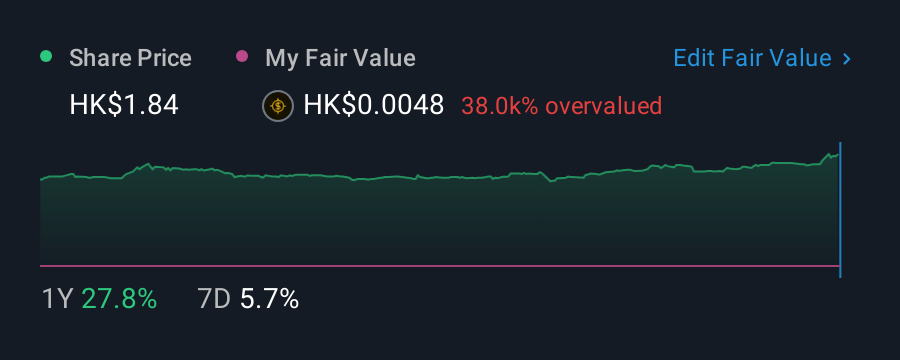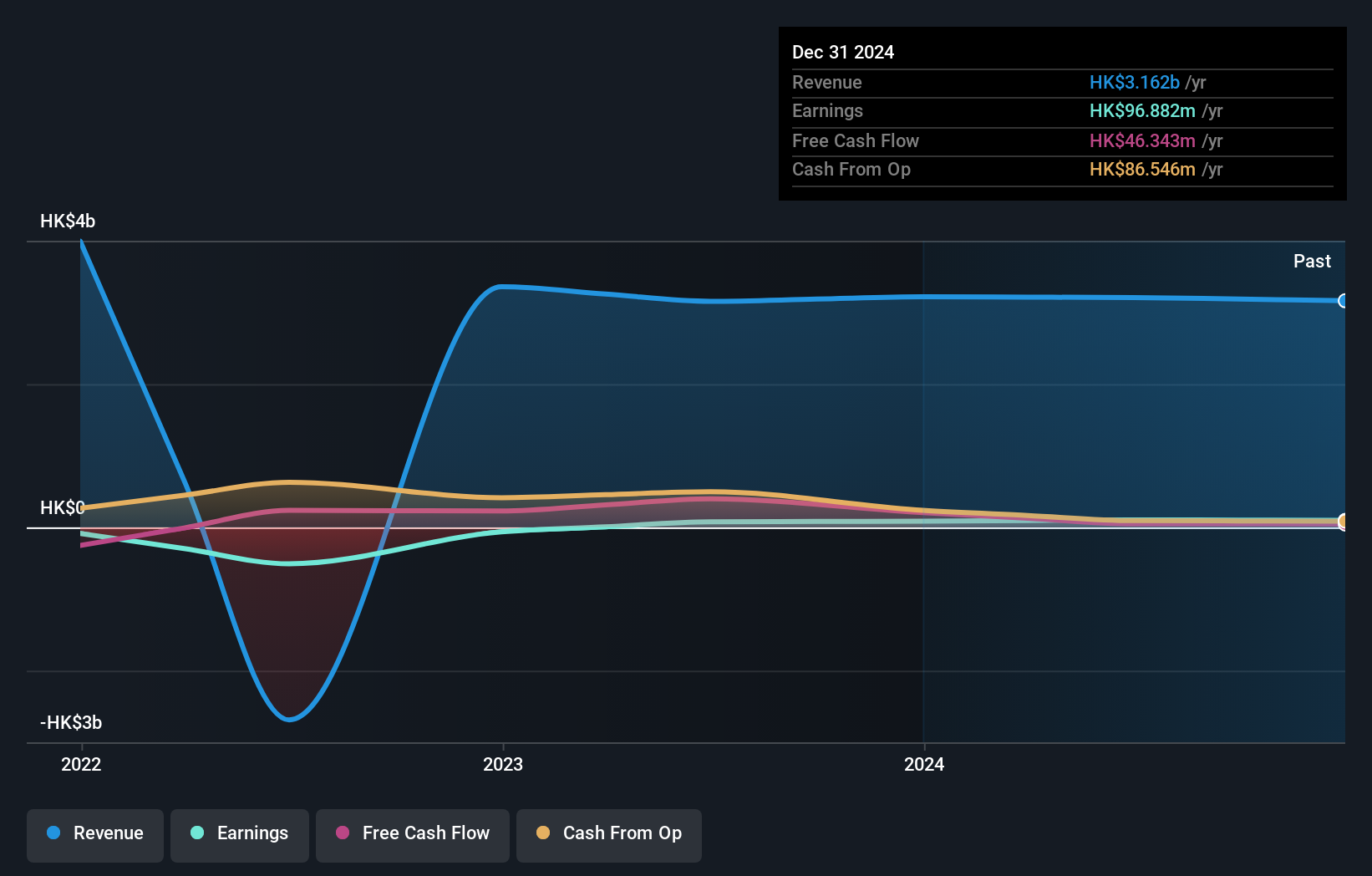Yip's Chemical Holdings Limited's (HKG:408): Top Key Executive Chi Shing Ip is the most bullish insider, and their stock value gained 10% last week

Key Insights
- Yip's Chemical Holdings' significant insider ownership suggests inherent interests in company's expansion
- 52% of the business is held by the top 3 shareholders
- Institutional ownership in Yip's Chemical Holdings is 15%
Trump has pledged to "unleash" American oil and gas and these 15 US stocks have developments that are poised to benefit.
A look at the shareholders of Yip's Chemical Holdings Limited (HKG:408) can tell us which group is most powerful. With 53% stake, individual insiders possess the maximum shares in the company. In other words, the group stands to gain the most (or lose the most) from their investment into the company.
As a result, insiders were the biggest beneficiaries of last week’s 10% gain.
In the chart below, we zoom in on the different ownership groups of Yip's Chemical Holdings.
Check out our latest analysis for Yip's Chemical Holdings

What Does The Institutional Ownership Tell Us About Yip's Chemical Holdings?
Institutional investors commonly compare their own returns to the returns of a commonly followed index. So they generally do consider buying larger companies that are included in the relevant benchmark index.
Yip's Chemical Holdings already has institutions on the share registry. Indeed, they own a respectable stake in the company. This implies the analysts working for those institutions have looked at the stock and they like it. But just like anyone else, they could be wrong. If multiple institutions change their view on a stock at the same time, you could see the share price drop fast. It's therefore worth looking at Yip's Chemical Holdings' earnings history below. Of course, the future is what really matters.

Hedge funds don't have many shares in Yip's Chemical Holdings. From our data, we infer that the largest shareholder is Chi Shing Ip (who also holds the title of Top Key Executive) with 32% of shares outstanding. Its usually considered a good sign when insiders own a significant number of shares in the company, and in this case, we're glad to see a company insider play the role of a key stakeholder. FMR LLC is the second largest shareholder owning 11% of common stock, and Fung Kuen Ip holds about 8.8% of the company stock. Furthermore, CEO Kwan Ip is the owner of 4.8% of the company's shares.
A more detailed study of the shareholder registry showed us that 3 of the top shareholders have a considerable amount of ownership in the company, via their 52% stake.
While studying institutional ownership for a company can add value to your research, it is also a good practice to research analyst recommendations to get a deeper understand of a stock's expected performance. Our information suggests that there isn't any analyst coverage of the stock, so it is probably little known.
Insider Ownership Of Yip's Chemical Holdings
While the precise definition of an insider can be subjective, almost everyone considers board members to be insiders. Management ultimately answers to the board. However, it is not uncommon for managers to be executive board members, especially if they are a founder or the CEO.
Insider ownership is positive when it signals leadership are thinking like the true owners of the company. However, high insider ownership can also give immense power to a small group within the company. This can be negative in some circumstances.
Our most recent data indicates that insiders own the majority of Yip's Chemical Holdings Limited. This means they can collectively make decisions for the company. Given it has a market cap of HK$1.0b, that means they have HK$549m worth of shares. It is good to see this level of investment. You can check here to see if those insiders have been buying recently.
General Public Ownership
The general public-- including retail investors -- own 31% stake in the company, and hence can't easily be ignored. This size of ownership, while considerable, may not be enough to change company policy if the decision is not in sync with other large shareholders.
Next Steps:
While it is well worth considering the different groups that own a company, there are other factors that are even more important. Take risks for example - Yip's Chemical Holdings has 2 warning signs (and 1 which is significant) we think you should know about.
If you would prefer check out another company -- one with potentially superior financials -- then do not miss this free list of interesting companies, backed by strong financial data.
NB: Figures in this article are calculated using data from the last twelve months, which refer to the 12-month period ending on the last date of the month the financial statement is dated. This may not be consistent with full year annual report figures.
New: Manage All Your Stock Portfolios in One Place
We've created the ultimate portfolio companion for stock investors, and it's free.
• Connect an unlimited number of Portfolios and see your total in one currency• Be alerted to new Warning Signs or Risks via email or mobile• Track the Fair Value of your stocks
Try a Demo Portfolio for FreeHave feedback on this article? Concerned about the content? Get in touch with us directly. Alternatively, email editorial-team (at) simplywallst.com.This article by Simply Wall St is general in nature. We provide commentary based on historical data and analyst forecasts only using an unbiased methodology and our articles are not intended to be financial advice. It does not constitute a recommendation to buy or sell any stock, and does not take account of your objectives, or your financial situation. We aim to bring you long-term focused analysis driven by fundamental data. Note that our analysis may not factor in the latest price-sensitive company announcements or qualitative material. Simply Wall St has no position in any stocks mentioned.
Disclaimer: Investing carries risk. This is not financial advice. The above content should not be regarded as an offer, recommendation, or solicitation on acquiring or disposing of any financial products, any associated discussions, comments, or posts by author or other users should not be considered as such either. It is solely for general information purpose only, which does not consider your own investment objectives, financial situations or needs. TTM assumes no responsibility or warranty for the accuracy and completeness of the information, investors should do their own research and may seek professional advice before investing.
Most Discussed
- 1
- 2
- 3
- 4
- 5
- 6
- 7
- 8
- 9
- 10